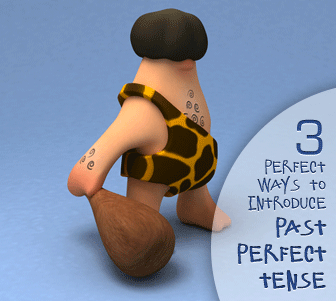How to Teach the Past Perfect Tense


Try these three perfect ways of introducing Past Perfect tense, and you will be surprised by all the light bulbs that go on. You can also let students know that this is a good tense to recognize and utilize in writing.
The function of the Past Perfect tense is to talk about an event or activity that was completed before another event, activity or time in the past. When using this tense, there will always be two past events or activities, or an event with a particular time in the past. You don’t have to include both events in the same sentence when the one event or time is understood from the context of the conversation.

One of the best ways to practice Past Perfect tense is by looking back at history, either on a grand scale or a personal one and create some timelines. A good one to start with is the students’ birthdays. You can create some questions or prompts, having to do with had xx activity/event happened when you were born? Had the internet been invented, Had a new president been nominated the year you were born? You can turn this into a guessing game in which each student is asked questions until the class can guess which specific year (and month if you want to make it really challenging) they were born.
You can then follow that up with other points in history or specific years and focus on what had and had not happened yet by that time. If there is a specific event happening near when you are teaching this tense you could use it to draw upon for a history lesson of sorts. For example, the summer or winter Olympics, a presidential election, or something to that effect. Students can ask similar questions as to the year they were born or things more targeted to the actual event. For example: Had Russia participated in the last winter Olympics? Had you heard of Barak Obama before the election? Had anyone seen a presidential debate before last night?
Reported speech is one of the few ways that Past Perfect is used frequently. Because reported speech is complex in and of itself you will want to focus on concrete second hand reporting. For example: John had called last night and he had asked me what time we should meet. When Mary had asked me if I wanted to go to dinner, I had told her that I was busy. You can provide scenarios like What had you and John discussed yesterday? The students can then ad lib the conversation. Another way to practice reported speech for Past Perfect tense is to have the students role plays various scenarios and then the audience of students watching the role play have to report what happened, or what was spoken about. Then they can switch so everyone gets a turn either being the speaker or the reporter.
The third conditional is basically the hypothetical past because we are talking about things that never happened.
If only I had been a better father.
If only I had studied harder for the test.
If I had gone home early, I wouldn’t have gotten into the accident.
I wish I had gone bungee jumping when I had the chance.
This conditional often displays regret or dissatisfaction with the past. You can also incorporate I wish, if only, or if I had.
A good practice activity is to give students prompts that they then create sentences from. After that they are to continue telling what happened, what hadn’t happened, what might have happened. This ends up being a good review of several tenses, including Past Perfect.
It is always a good idea with an advanced tense to do some sort of book work in order to really discuss and dissect the tense. Students may have to prove their knowledge of the tense later on if they are doing any sort of TOEFL or college entrance exams.